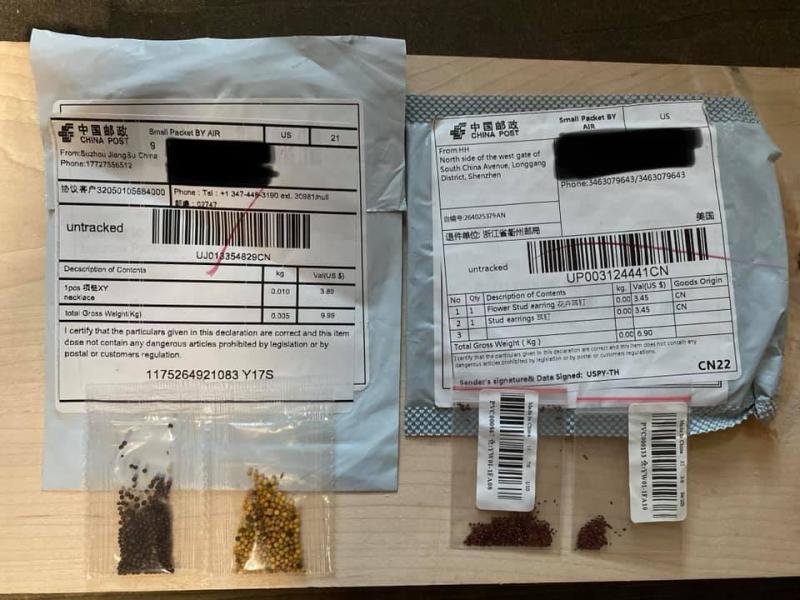Seed scam: Dartmouth resident among those getting mystery packages
Kerrie Parsons had been waiting quite some time for some strawberry seeds to arrive at her house. So when a package showed up at her front door, she didn’t think it was a big deal.
But while the package did contain seeds, they were not labeled as such. Nor did they look like the seeds she expected.
“They came in a strange package and the return address was unfamiliar to me, which put all kinds of red flags up in my head,” Parsons said.
In the past two weeks, unsolicited packets of mysterious seeds from China have arrived at doorsteps all across the US. Now those parcels are making it to Dartmouth.
Parsons said that her surprise delivery was marked as “stud earrings,” but contained strange seeds instead of jewelry.
She added that the seeds remain unopened in a plastic bag on her counter and that she would send them to the state’s Department of Agricultural Resources, as the federal government has asked seed recipients to do.
“I guess it goes along with everything else strange lately,” Parsons said. “I feel like we are living in the Twilight Zone.”
The packages have raised significant concerns from federal and state agencies over whether they contain seeds for invasive species, as imported vegetable or agricultural seed must meet labeling requirements and be inspected at ports of entry.
In a July 29 statement, a U.S. Department of Agriculture official said that 14 species of the seeds have been identified among the packets reported.
Among those identified are common plants like mustard, cabbage, morning glory, mint, sage, rosemary, lavender, hibiscus and roses.
The USDA noted that the agency has no evidence of the seed packets being anything but a “brushing scam” where people receive unsolicited items from a seller who then posts false customer reviews to boost sales.
“Brushing scams involving seed packets in international mail shipments are not uncommon,” the statement read. “U.S. Customs and Border Protection has intercepted similar seed shipments in recent years.”
The department urges anyone who receives the seeds to hold on to them until they can be contacted by state or federal agricultural officials. Once seeds are received by the USDA, they will be tested to determine if they are a threat to agriculture or the environment.













